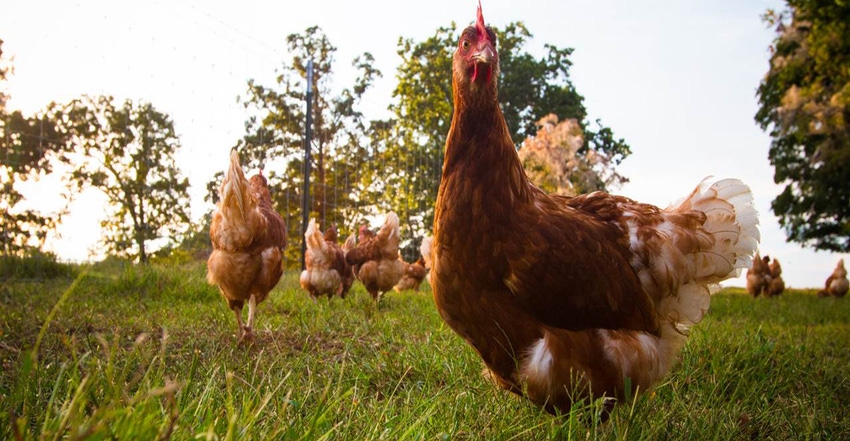Each day at 5 p.m. we collect the five top food and supplement headlines of the day, making it easy for you to catch up on today's most important natural products industry news.
August 10, 2021

The fight over cage-free eggs and bacon in California, explained
California consumes 15% of the nation's pork and 12% of the nation's eggs, which means pork producers hoping to sell their products in the state will need to make major structural changes (at significant cost) before Jan. 1, 2022, as a result of Prop 12. Prop 12 targets animal welfare in a way no mandate has before: it outlaws gestation crates for sows and battery cages for egg-laying hens in farming operations—a part of the law that covers veal went into effect last year. As you might imagine, Prop 12 has been under attack from a bevy of meat industry trade groups, but they have thus far been unsuccessful at overturning it largely because of the egg industry's successful compliance with Prop 12's predecessor in early 2015. Vox predicts that California pork prices will rise in January and that some in the meat industry will maintain the law is simply too difficult and too expensive to comply with.
Average hourly pay for restaurant and supermarket workers has topped $15
Average pay for workers in restaurants and supermarkets has hit $15 an hour for the first time in U.S. history, reports Eater. To survive the ongoing labor shortage, supermarket operators are now drawing in prospective employees with perks including emergency childcare benefits, tuition reimbursement, signing bonuses and higher hourly wages—you know, stuff they should have been offered to begin with. While grocery store workers were hailed as heroes throughout the pandemic, their wages were not adjusted accordingly and most lacked both adequate protection and benefits. It's also worth mentioning that while this milestone is worth celebrating, $15 an hour does not constitute a living wage in many parts of the country, especially for families.
What’s the visual symbol for ‘pasture-raised’ meat? There isn’t one—yet
Creating universal symbols for things like regenerative agriculture or pasture-raised meat isn't easy; these are complex agricultural processes that have very precise definitions and don’t really lend themselves to clean visuals. At the same time, companies are taking advantage of shoppers' desire to purchase eco-friendly products by commissioning icons that make them appear more natural than they really are, so the effort to standardize them is a necessary one. This is why the sponsorship of such labels is so important: Nicole Darnall, a professor at the School of Sustainability at Arizona State University, found that industry-sponsored ecolabels tend to have weaker rules than those created by independent, third-party groups. The Counter describes the rocky journey from proposed icon to mass adoption and consumer recognition.
Hybrid rye is helping farmers fight 'superweeds' without herbicide
Organic farmers are finding success fighting off a mega-weed without the use of herbicides, an accomplishment that could have huge ramifications for the long-term viability of Corn Belt agriculture as it worsens ecologically from a lack of biodiversity. Over the past five years, U.S. farmers have begun raising hybrid rye to break up weed cycles and diversify their portfolio. KWS’s Nymand estimates that as of 2021, 40,000 acres of the grain were grown in the U.S., which is still a small fraction of the roughly 180 million acres of corn and soybeans planted this year. Research shows that adding a third crop such as a small grain to the corn-soybean rotation can cut greenhouse gas emissions by 54%; a fourth crop in the rotation lowers emissions by another 10%. Learn more at Civil Eats.
Why Chef Roy Choi is subbing plant-based meat in traditionally meat-heavy dishes
Chef Roy Choi believes that plant-based protein products are getting so good, they've reached the "internet deep-fake stage, almost where we can't tell the difference." This is why he's been swapping in vegan alternative protein products in traditionally meat-heavy meals as part of Field Roast's "Make Taste Happen" campaign, which targets flexitarians with the notion that meat made from vegetables can in some cases work better than conventional meat. Choi wants other chefs to step up and take a stronger stance to persuade consumers of the merits of plant-based meat: “We can change things if we make plant-based meat cool and chefs and tastemakers start to make it a part of their daily life, just like with Twitter all the way to TikTok,” he says. Head to Vice for more.
About the Author(s)
You May Also Like


